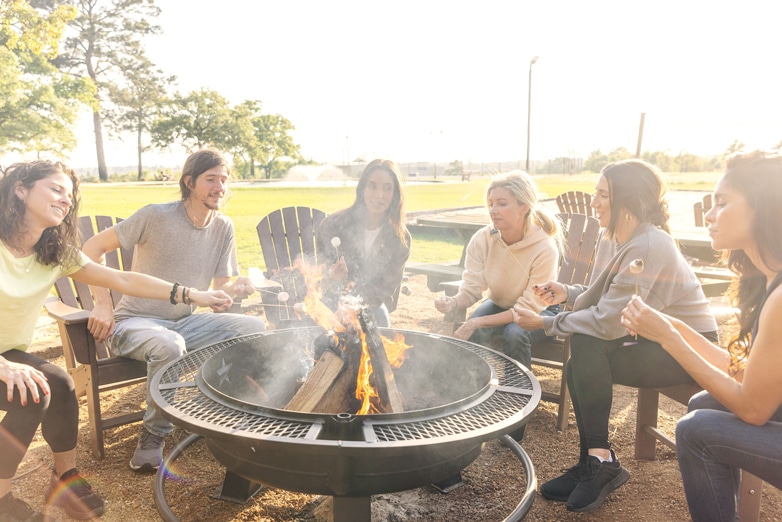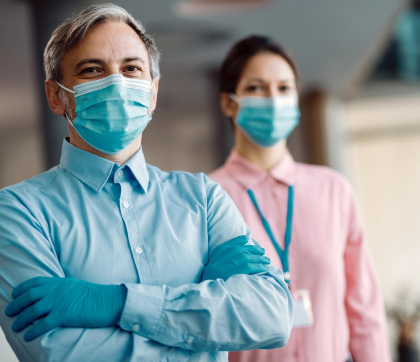For some people, residential treatment programs might be a good treatment option for treating drug and alcohol addictions.
How Residential Treatment Programs Work
Also known as inpatient treatment programs, residential treatment programs treat people with addictions to substances such as alcohol or drugs or compulsive behaviors that resemble addictions.
As their name indicates, residential programs feature patients who are also residents. That is, they allow patients to stay in the facilities where they’re receiving treatment. This makes the programs different from outpatient treatment options in which people receive treatment at facilities but continue to live at home.
Elements of Residential Treatment
Depending on the facilities, the work of the staff members, the needs of their patients, and other factors, residential addiction treatment centers differ from each other. All programs have rooms for patients and areas where they receive treatment. Because the centers serve as temporary homes, many feature home-like touches, such as comfortable beds and common areas for relaxing.
Beyond that, several have amenities to enjoy during residential treatment. Some emphasize luxury by offering gyms, pools, spa facilities, personal trainers, and gourmet meals. Others feature workstations that allow patients to keep up with their jobs.
Regardless of what they offer, residential treatment centers work with their patients to recognize and manage their addictions. We have taken the necessary precautions to minimize the risk of exposure and transmission of the Coronavirus to those in our treatment programs, allowing them to focus on their recovery.
Get Help During COVID-19
What To Expect During Residential Treatment
Because patients and residential treatment centers are different, people can’t expect a certain type of residential treatment experience. Most people undergo many or all of the following experiences, however:
- Intake or admissions. When people arrive at a residential treatment center, they complete paperwork and assessments and meet with staff members to determine the types of treatment options they might need.
- Detox (detoxification). Before starting treatment, many people undergo detox to remove drugs or alcohol from their bodies. To ease withdrawal symptoms, people might use prescription medications or behavioral therapy sessions.
- Therapy. Therapy is a common component of many addiction treatment programs. It helps people understand what triggers their addictions and how to avoid such triggers. People might participate in a group, individual, or family therapy as well as therapy that incorporates art, music, nature, or animals.
- Support groups. Many residential treatment centers encourage patients to join sobriety support groups. The groups allow people in recovery periods to gather, talk about their addictions, and provide social support for each other.
- Aftercare. Several treatment centers help patients find continuing assistance after they leave the facilities. Such assistance might include meeting with therapists or support groups to give people outlets to express their feelings and bolster their ongoing recovery.
Who Benefits?
One of the benefits of residential treatment is that it helps so many people. Since residential treatment takes people away from their environments and requires them to live in their treatment facilities, it can help remove people from situations (places and people) that trigger their drug or alcohol use.
But addiction affects much more than the person who is misusing substances, and addiction treatment addresses more than addiction. By successfully completing a residential treatment plan, a person is sober and better equipped to face life.
After people leave rehab, drugs and alcohol are less likely to interfere with their lives. They’re more likely to be a more reliable spouse, partner, parent, friend, coworker, or classmate because those substances aren’t getting in the way of their relationships and responsibilities anymore.
People who have attended rehab centers are often healthier and happier after recovery, and have more time, energy, and money to devote to people and interests. They’re less likely to be involved in accidents or other dangerous situations caused by substance use. Their friends and relatives aren’t suffering as they watch their loved ones struggle with addiction.
Residential treatment can do so much and help so many.
Sources
Medical disclaimer:
Sunshine Behavioral Health strives to help people who are facing substance abuse, addiction, mental health disorders, or a combination of these conditions. It does this by providing compassionate care and evidence-based content that addresses health, treatment, and recovery.
Licensed medical professionals review material we publish on our site. The material is not a substitute for qualified medical diagnoses, treatment, or advice. It should not be used to replace the suggestions of your personal physician or other health care professionals.







